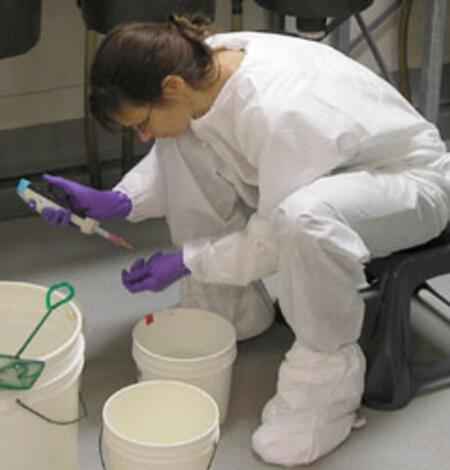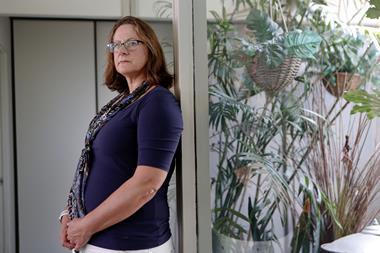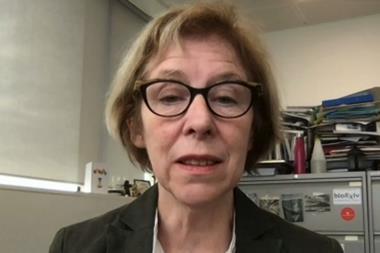A microbiologist has won her case for unfair dismissal against a US federal agency after she blew the whistle on animal welfare and biosafety failures. The US Geological Survey (USGS) hired Evi Emmenegger as a fisheries microbiologist in 1994, and in 2006 promoted her to manager of the highest biosafety level containment laboratory at the agency’s Western Fisheries Research Center (WFRC) in Seattle. But in 2017, she became a whistleblower when she filed a scientific integrity complaint that the agency dismissed before putting her on leave in January 2020 and then firing her for alleged lapses in her research – a termination that was later retracted.
I won on this, but it’s like five or six years that this has gone on
Evi Emmenegger, USGS
Emmenegger sued the agency, claiming that it retaliated against her unfairly for reporting animal welfare and biosafety failures, and now the administrative court that oversees the federal civil service agrees with her. Last month, the US Merits System Protection Board (MSPB) issued a final ruling that she was terminated wrongfully because of her protected whistleblower activities. It even directed the US Office of Special Counsel, which is the federal investigative and prosecutorial agency, to investigate and take appropriate disciplinary action against USGS managers found to have unlawfully retaliated against her.
The USGS is charged with providing science-based information on ecosystems, natural hazards, water and more.
Lab failures

In July 2017 Emmenegger, who had previously served as her centre’s biosafety officer and sat on its institutional animal care committee, reported deficiencies in the care of aquatic lab animals that might affect the integrity of its experiments. She reported the loss of research animals due to equipment failures, and said scientists weren’t notified of water temperature spikes and flow alarms.
Also in July 2017, she learned that the centre had been discharging pathogen-contaminated wastewater for about six months into the Lake Washington Wetlands. She argued that the release of viruses had put endangered native fish at risk. As part of her duties, she was required to report such lapses to regulatory agencies, Emmenegger notes.
Emmenegger makes clear that the views expressed in her Chemistry World interview belong to her and do not represent those of the USGS, its parent agency the US Department of the Interior (DOI) or the US government.
Unfair dismissal
After facing some backlash from the centre’s leadership Emmenegger says that she decided to reach out for assistance to the non-profit Public Employees for Environmental Responsibility (Peer), which provides pro bono legal representation for whistleblowing scientists at government agencies. She ended up reporting the wastewater leaks to regulatory agencies and filed an internal scientific integrity complaint with the DOI, and Peer has served as her legal representative ever since.
Within weeks of the dismissal of that complaint, Emmenegger received an assignment that resulted in a proposed termination on the grounds of poor performance connected to a statistical analysis in a draft paper, according to Jeff Ruch, who represents Emmenegger and is Peer’s Pacific director. ‘Our contention, which was ultimately upheld by the merit system – initially the judge and then the full board – was that this was bogus, pretextual and arose in connection with the fact that she had made protected disclosures about all these lab issues,’ he says.
In May 2021, just days after she filed her initial grievance, the USGS ordered Emmenegger back to work and withdrew the proposed termination on the grounds that it was technically deficient, Ruch adds. Once Emmenegger was rehired, she initially had restricted access to the facility’s computers and lab. ‘Her ability to access the high biosecurity lab had been suspended, she was taken off all review committees – basically just a pariah,’ Ruch states.
Although Emmenegger is no longer the manager of the biosecurity level three lab and doesn’t sit on two key committees anymore, the MSPB found that the USGS had restored her position with full back pay and benefits. Nonetheless, the board agreed that she had been terminated wrongly because of her protected whistleblower activities. She was off payroll for the two months before her termination was rescinded but was eventually fully compensated for that time. Emmenegger believes that her victory was a result of keeping meticulous and copious documentation.
The USGS was approached for comment but said that it does not go on the record on personnel issues.
Emmenegger’s legal team is now preparing a petition for legal fees, which Ruch estimates could be in the region of $250,000 (£197,000). Peer is also preparing a separate claim for compensation for Emmenegger for pain and suffering, as well as out-of-pocket medical and counselling expenses.
Emmenegger suggests her story could have one of two effects on future whistleblowers. ‘It can embolden scientists, or it can make them more scared,’ she says. ‘I won on this, but it’s like five or six years that this has gone on, and there are so many whistleblower scientists that didn’t get hired back and I’m sure their cases are just as valid.’

















No comments yet